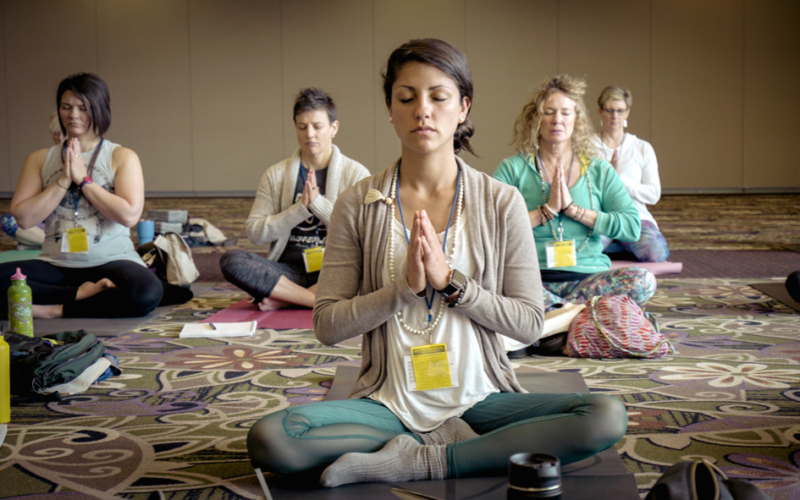Meditation is a kind of psychological and spiritual exercise used to eliminate cluttered ideas so that people are calm and think clearly. Studies have shown that meditation can make a person’s brain younger!
Los Angeles, CA (Business Northeast) – Where does meditation come from? Historically, meditation is an act in religious activities (Hinduism, Buddhism, Taoism), such as Yoga, Qigong, Bhavana, etc. Now, any religious or non-religious spiritual training in sit quietly and other methods can be called meditation. Meditation allows people to pay attention to their breathing and focus their minds, and gain spiritual power from it.
Many studies have confirmed the benefits of meditation. A study published in NeuroImage in 2016, “Estimating brain age using high-resolution pattern recognition: Younger brains in long-term meditation practitioners,” showed that when long-term meditators reach 50, their average brain age is 7.5 years younger than non-meditators.
This study scans the brains of 50 long-term meditators. The meditators have regular meditation habits. Most participants practice meditation every day. The meditation experience ranges from 4 to 46 years, with an average of 19.8 years.
Research teams from the University of Wisconsin-Madison and Harvard Medical School also found that daily meditation may delay aging. They published the paper “BrainAGE and regional volumetric analysis of a Buddhist monk: a longitudinal MRI case study” in Neurocase in 2020.
This includes studying the brain of Yongey Mingyur Rinpoche. Yongey Mingyur Rinpoche is a 41-year-old Buddhist monk. He practices meditation almost every day. Researchers have scanned his brain four times with an MRI machine in the past 14 years.
“YMR’s brain-aging rate appeared slower than that of controls suggesting early maturation and delayed aging. At 41 years, his brain resembled that of a 33-year-old,” the researcher said. ”Specific regional changes did not differentiate YMR from controls, suggesting that the brain-aging differences may arise from coordinated changes spread throughout the gray matter.”

Most people believe that people use meditation to regulate breathing, ease their mood, and get clearer thinking. According to “On Variation in Mindfulness Training: A Multimodal Study of Brief Open Monitoring Meditation on Error Monitoring,” published in Brain Sciences, the study found that meditation can help people reduce the possibility of errors.
The research team recruited more than 200 participants. They received a 20-minute Open Monitoring Meditation exercise, while the researchers used machines and EEG to measure brain activity. Then, they completed a computerized distraction test.
“The EEG can measure brain activity at the millisecond level, so we got precise measures of neural activity right after mistakes compared to correct responses,” the researcher said. “A certain neural signal occurs about half a second after an error called the error positivity, which is linked to conscious error recognition. We found that the strength of this signal is increased in the meditators relative to controls.”











1 comment